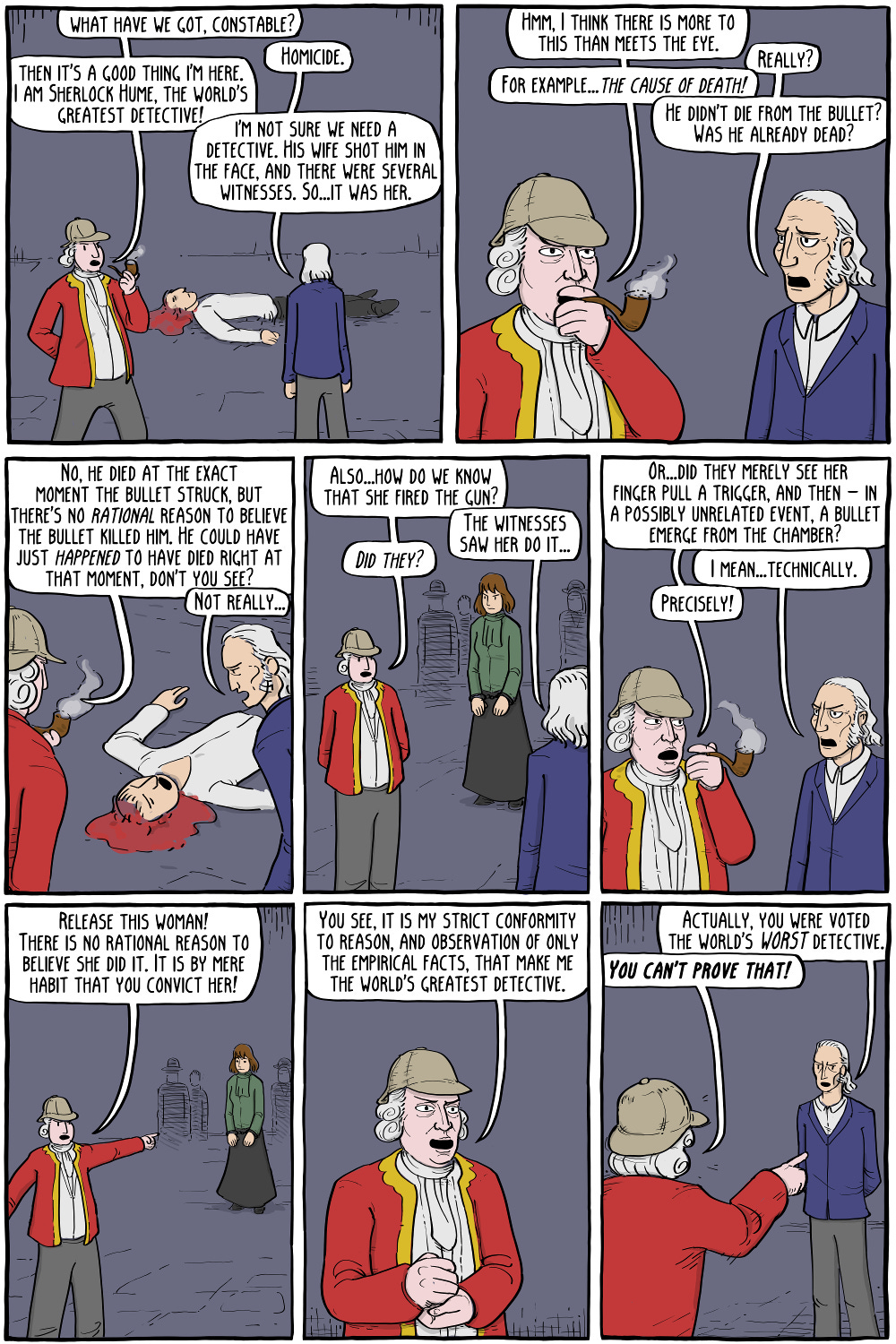I have a natural tendency to be skeptic towards any theory. Political, philosophical, logical. I am not easily convinced. And that sometimes becomes a pain in the ass for the people close to me. I feel sorry for them as I don’t think I will ever stop being a skeptic. Because…
To be skeptic is to not settle for one particular definition, interpretation or such. It is to be open-minded and ready to dive into the murky water. It is the most efficient way of improving our understanding of the world as individuals, and as a species.
Why should you question things?
Consider the Aristotelian universe: the Earth was in the middle of the solar system and other things used to orbit around it, and so on. But now we know that it is not at all true!
And if it weren’t for the skeptics Galileo, Copernicus, Kepler (or any other person that had the guts to question the tradition), we may still be believing in something false.
So, if you want to be oblivious for the truth, and remain content with an imperfect worldview (comparitively, as no one has a perfect worldview, but surely there can be better models than one), then maybe being a skeptic is not for you.
Hume’s Skepticism.
The objective of most of David Hume’s work is not to disprove a certain possibility. It is instead to disprove the assumptions that we might be holding to prove such possibility.
Say, you asked Hume about the existence of God, trying to justify your believe. You throw in all kinds of arguments supporting it.
He won’t argue that he/she/they don’t exist. Instead he’d say something along the lines of “Perhaps you haven’t considered the fact that there can be more than one god, or perhaps the universe is based on chance!”
The core idea is that, he sees that often our logical assumptions are based on shaky foundations. That effect doesn’t always follow cause! You cannot always say that “X has happened because Y caused it” (e.g. a parent blaming the video game for their kid’s downfall, which may not be the only factor).
Causality is not always true, and you have to be open for the other possibilities.
Hume’s counter on miracles
Some John Doe comes to Hume in a frenzy, “MY MOTHER HAS BEEN BROUGHT FROM THE DEAD!! IT’S A MIRACLE!”
What would Hume say? Well, he would say something like, “Hmm, miracles happen when the laws of nature are temporarily suspended and violated, which is very, very unlikely. Now, which has the greater probability? You being deceived, or nature itself not abiding by its laws?”
You see, he is not really shrugging off the possibility of a miracle, he is simply stating that it is more probable to be deceived than to actually experience a miracle.

Hume in real life?
Arrogancy, orthodoxy and blatantly fixed mindsets, all of which you could “cure” using such skeptic tendencies.
You don’t believe in me? That’s great! But you must make sure that you’re not biased, because, Hume’s skepticism is not about fulfilling your confirmation bias, instead it is about questioning your current mental models through experiences and improving them.
So, if we found a better mental model than this skepticism, would Hume feel bad about it? (There might be a better model, you never know. Aha! Skepticism!)
Well, he’s long dead, but even if he was alive, he would have been proud and said, “I see you’ve critically examined your life and questioned your beliefs to get closer to the truth, and for that, I respect you.”
Of course that line was fictional, but I really do think that he would’ve been proud.
What could I possibly do with all of this?
Question stuff, never settle. And you’re golden.
Don’t annoy parents or partner with it though… That won’t turn out well. Tried and tested.
Further Reading
Hume on Philosophize This!
(this post was largely inspired by this)
Hume’s Fork (1, 2): Classification of knowledge in a priori and a posteriori; that any knowledge that doesn’t fit in these two categories cannot be known or proven.
“How important is Hume?” (r/philosophy)
An Enquiry Concerning Human Understanding (1748): Epistemological work based on empirical school of thought.
Of Standard of Taste (1757): About taste and judgement of art.








This article encapsulates the thinking of David Hume. Really the only problem with this line of thought is how inefficient it is in making decision, I don't think it can universally apply to the moral conflicts of life.
But your writing are precise and decisive (maybe they shouldn't). You have covered almost all the perspectives Hume has penned down. Very Well done !